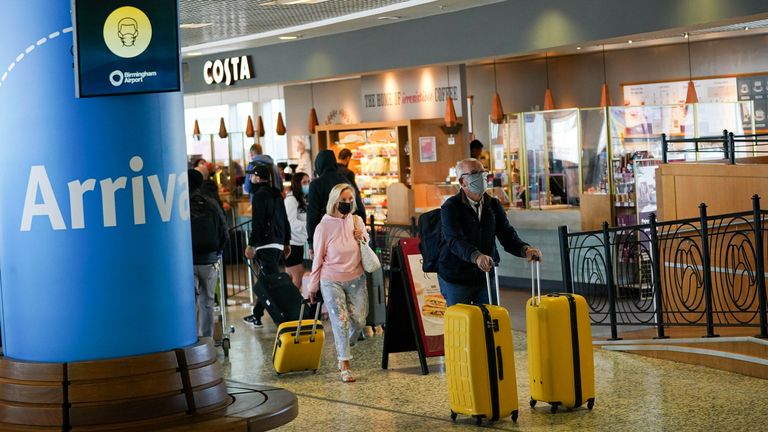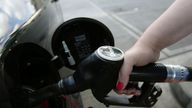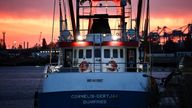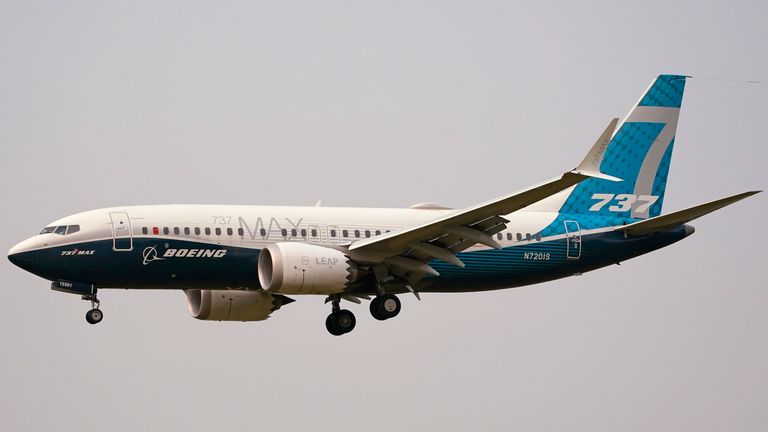Ryanair set to sell tickets at a discount in bid to fill its planes over the winter
Ryanair has said its recovery in passenger numbers “will require continuing price stimulation” while revealing improved losses for the first half of its financial year.
Europe’s largest airline by passenger numbers reported losses after tax of €48m for the six months to the end of September though its numbers implied a profit of €225m over its second quarter as a COVID vaccine-led reopening of the skies got underway.
The figure represents its first quarterly profit since the pre-pandemic final three months of 2019.
The no-frills airline carried 39.1 million passengers over the six month period – 54% up on the same six months of 2019.
It pointed to a strong end to the summer as it operated over 71,500 flights in October with an 84% load factor – meaning its flights were 84% full.
Revenues were 83% higher during the half-year.
But chief executive Michael O’Leary said: “While sectors and traffic more than doubled, operating costs increased by just 63% to €2.2bn (£1.86bn), driven primarily by lower variable costs such as aircraft, airport and handling, route charges and fuel.
He added that while he expected a “very strong” recovery in load factors heading into the next core summer season, he predicted the looming winter would be “tough”.
He cited little visibility on demand and ticket prices as the airline grappled rising fuel costs – 20% of which are not hedged.
It hoped that its price approach would mean the airline would carry “just over” 100 million people over the year to March.
Ryanair said that, as a result, it expected to report a loss after tax of between €100m and €200m for the period.
It argued it was in a better place than rivals to recover from the coronavirus crisis as it had invested heavily in a more environmentally-friendly fleet.
It said the “gamechanger” Boeing 737 MAX planes – once all grounded globally following two fatal crashes but later cleared to fly again – would cut its costs and enable lower fares.
Ryanair, which expects to have 65 of its 210 planes operating by next summer, claimed that every passenger who switched to Ryanair from legacy airlines “reduces their CO2 emissions by up to 50% per flight”.
The US-made aircraft offer 4% more seats but consume 16% less fuel.
Mr O’Leary last month raised Ryanair’s five-year growth target to fly 225 million passengers a year by 2026, from 200 million.
Shares were largely flat at the open.
Richard Flood, investment manager at Brewin Dolphin, said of the update: “Ryanair’s results remain a ‘jam tomorrow’ story.
“The airline is likely to experience a tough winter, with high fuel prices and weak pricing. But it is particularly well placed operationally and financially to benefit from a very strong recovery from next summer.”




